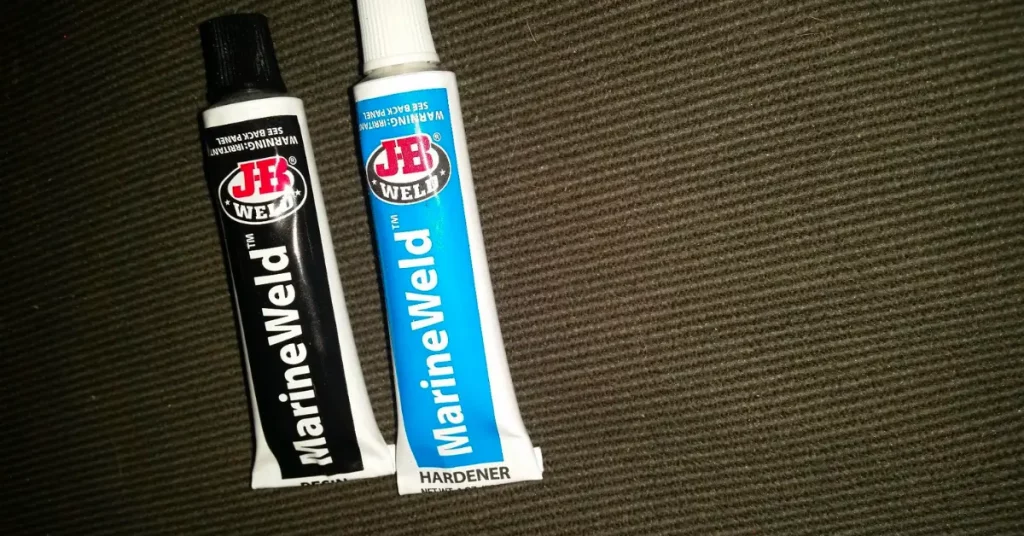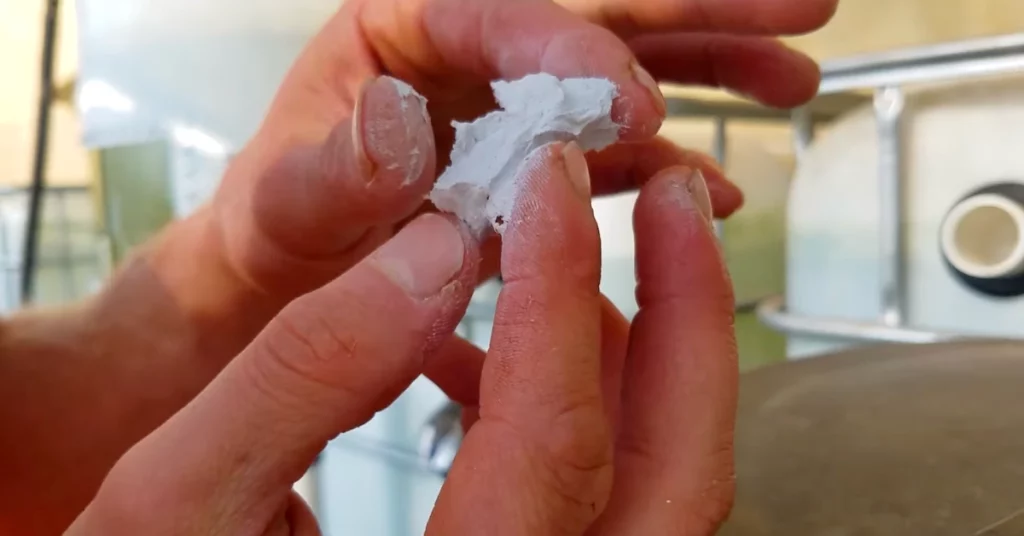When it comes to repairing anything related to water, then you must have heard about JB Weld MarineWeld and JB Weld WaterWeld. But you may be confused, What is the difference between them? In this article, I will try to answer that question by providing a comprehensive comparison about jb marine weld vs. waterweld.
Read More: JB Weld Marine vs. Original
JB Marine Weld vs. WaterWeld

Overview of JB Weld MarineWeld
A two-part epoxy putty made especially for marine and underwater applications is called JB Marine Weld. It is formed of a metallic composition that when put together makes a solid bond. This product is a fantastic option for fixing a variety of surfaces and structures, including aluminum, brass, copper, stainless steel, and fiberglass. It may be molded, drilled, sanded, and painted. It takes 4-6 hours for the tubes to set and 16–24 hours for them to cure after being mixed at a 1:1 ratio.
Overview of JB Weld WaterWeld
WaterWeld is a quick-drying, waterproof epoxy putty that may be applied to dry or wet surfaces. It can repair holes and cracks in nearly anything as well as block or seal leaks. Ideal for fixing potable water tanks, fuel tanks, tubs, showers, drains, pools, spas, and boats; setup is possible even underwater. This product is moldable, sandable, and paintable, and it sets in about 15 minutes, making it an ideal alternative for rapid repairs. It is perfect for patching up leaks and cracks in a variety of materials, including metal, wood, fiberglass, and ceramic.
Read More: How to Use JB Water Weld?

Similarities and Dissimilarities Between JB Weld MarineWeld and JB Weld WaterWeld
| JB Weld MarineWeld | JB Weld WaterWeld |
| Material: Rubber | Material: WaterWeld Epoxy Putty Stick |
| Compatible Material: Steel, Wood, Aluminum, Metal, Plastic | Compatible Material: Metal, Porcelain, Brick, Ceramic, Plastic, Carbon Fiber, Concrete, Rubber, Marble, Fiberglass |
| Cure Color: Dark Grey | Cure Color: Off-White |
| Setting Time: 4-6 hours | Setting Time: 25 Minutes |
| Curing Time: 16-24 hours | Curing Time: 1 hour |
| Tensile Strength: 5020 PSI | Tensile Strength: 1300 PSI |
| Surface Applications: Wood, Metal, Aluminum, Plastic/Composite, Fiberglass | Surface Applications: Copper, Brass, Fiberglass, Plastic, PVC, Iron, Stainless Steel, Aluminum, Bronze |
Read More: JB Weld ClearWeld vs. Original
Which One Is The Best? JB Weld MarineWeld or JB Weld WaterWeld?
Both JB Weld MarineWeld and JB Weld WaterWeld have benefits and drawbacks when it comes to fixing surfaces related to water. You can choose the one that is most appropriate for you based on the sort of repair you need.
JB Weld MarineWeld is a superior option for heavy-duty repairs like patching up fractures and leaks in water crafts like- boat since it has a greater bonding strength. On the other hand, JB Weld WaterWeld works well for minor fixes and surface cracks on the surfaces that frequently contact with water.
In terms of tensile strength JB Weld MarineWeld is the clear winner with a tensile strength of 5020 PSI. On the other hand, JB Weld WaterWeld has a tensile strength of just 1300 PSI.
When it comes to ease of use, both JB Weld MarineWeld and JB Weld WaterWeld are simple to use. However, JB Weld MarineWeld needs a little more mixing and preparation because it comes in two parts. On the other hand, JB Weld WaterWeld can be used straight from the tube.
In terms of setting and curing time, JB Weld MarineWeld requires more time to set in between four to six hours and cures in16 to 24 hours. While JB Weld WaterWeld sets in just 25 minutes, so it cures considerably more quickly (just in 1 hour).
You may pick the product that is best for you by taking into account the aspects mentioned above. But of course, if you need a strong and heavy-duty repair on any watercraft then JB Weld MarineWeld is the best option without any doubt.
On the other hand, if you are repairing minor cracks and leaks on a surface that frequently gets contacts with water, then you should go for JB Weld WaterWeld without any confusion.
Last Opinion
JB Weld WaterWeld is a better option for tiny repairs and surface cracks, whereas JB Weld MarineWeld is ideal for heavy-duty repairs. Remember, both items have their advantages and disadvantages. The ideal option will rely on the specific repair work at hand as well as personal preference. Hopefully, this jb marine weld vs. waterweld comparison will help you in that matter.

